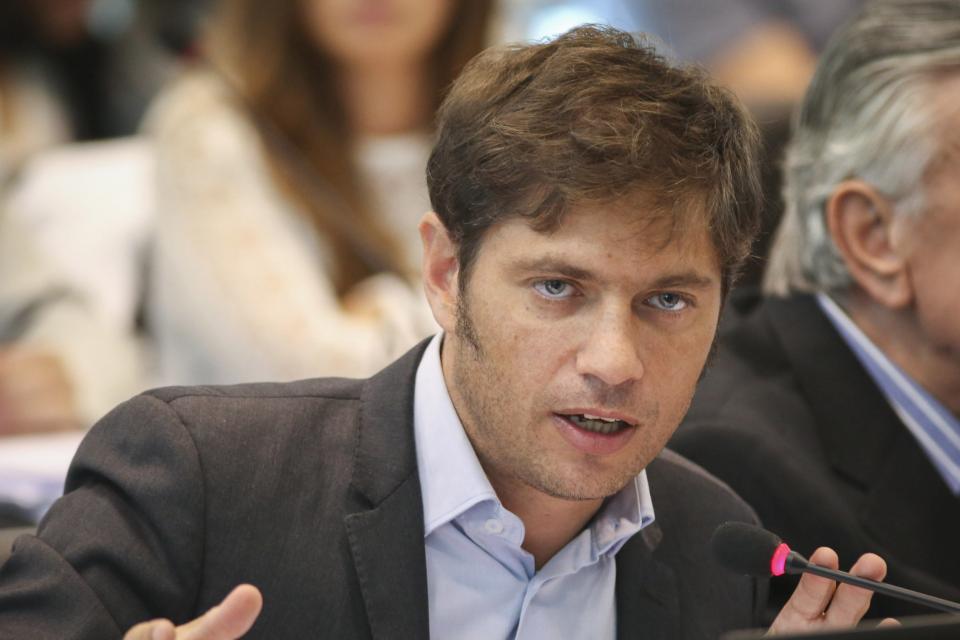RIO DE JANEIRO, BRAZIL – Axel Kicillof, kirchnerist governor of Buenos Aires, had to yield to creditors. They did not grant him the deferral he was asking for, they placed him one step from default, and the turmoil was too much for him: after assuring for weeks that the province could not pay and pushing the negotiations to the limit, at the last minute he decided that he would pay the public debt.

Kicillof deposited on Wednesday, February 5th, the US$250 million (R$1 billion) that expired on January 26th, plus US$27 million in interest. A provincial default of unforeseeable consequences is thus prevented, but the next renegotiation of the entire Argentine debt is made difficult: creditors have learned that intransigence yields good results.
The governor of Buenos Aires blamed the Fidelity Fund for the failed negotiations. The US giant, which manages funds close to US$10 trillion worldwide, clung to its position from the very first minute. Fidelity claims to hold more than 25 percent of the bonds corresponding to the BP21 issue and, therefore, its position was crucial for acceptance or rejection of a minimum of 75 percent of creditors.
Without Fidelity, no deal would have been possible. “We spoke with over 200 creditors, a committee of major investors accepted our proposal and praised our approach, but there was a fund that could block it, and it did not engage in dialogue,” Kicillof told journalists. The province, he said, has secured the endorsement of just over 50 percent of BP21 bondholders. It was not enough.
Axel Kicillof provided explanations in the most unclear way possible. He neither mentioned the word default, nor Fidelity, nor said clearly that he would pay what he had previously qualified as unpayable. He only commented that last Friday he had issued a new debt in pesos, swallowed up by Argentine institutions and that this collection, added to own resources, would allow him to handle the payment of US$277 million, “without the involvement of the national government”.
The governor had for weeks been juggling to avoid disbursing the second installment of the BP21 set for last January 26th (the first was settled as planned in January 2019). First, he had urged that the repayment of both principal and interest be deferred to May 1st. As the proposal failed (only 24 percent of investors accepted), he offered to pay the interest now, and leave the principal to May.

The deadline to accept or reject this offer was Friday, January 31st. On that day, Kicillof extended the deadline until Monday, February 3rd, and refined the proposal: he offered immediate payment of interest and one-third of the principal, and demanded a reply before 6 AM on Tuesday, February 4th. At 6 AM on Tuesday he again extended the deadline, until 1 PM. It was useless. “We last spoke to this fund 15 minutes ago,” said the governor when the deadline expired, “but they insist on their plan to receive the full amount in installments, something that does not suit us”.
Kicillof announced that from then on “a restructuring process of the province’s debt in foreign currency would be initiated”. That statement had the same importance, very relative, as the one made weeks ago when he proclaimed that the payment of the US$250 million plus interest would be postponed until May 1st. As evidenced by the BP21 bond’s prowess, it is the creditors who decide whether a debt is restructured, when and how.
The only remedy in the hands of the province (and the Argentine Republic in renegotiating the national debt with the IMF and private investors) is not to pay it. In other words, declaring oneself in suspension of payments, the feared default, or moratorium. And that means losing all sources of external financing for a long time.
The governor of Buenos Aires dedicated a good part of his presence to reminding that the province should pay over US$3.3 billion over the next four years, “an unaffordable, unpayable figure of more than 15 percent of our revenue,” and that this inheritance came from Macrism. This was not the case with the BP21 bonus, issued in 2011 by the then Peronist governor Daniel Scioli, but jointly added up to the truth.
The Macrist governor of Buenos Aires during the last four years, María Eugenia Vidal, increased the global debt from US$9 to US$12 billion, but during that time the official dollar rose from being worth a little more than 20 pesos to more than 60 (80 in the parallel market), which in practice meant a tripling of the external debt burden of Argentina’s most populous province.
Source: El País

